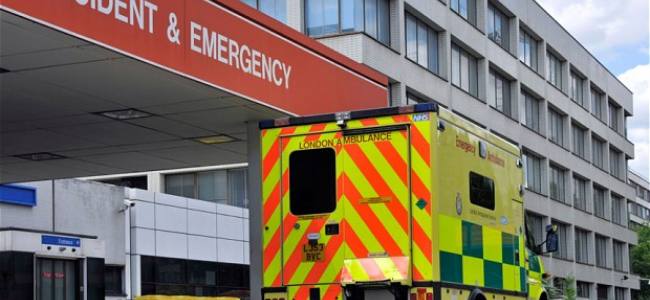
Is it possible to reduce unplanned hospital admission for older people with dementia?
Why and How are the Emergency ambulance services involved in unexpected support of older people with dementia in residential care homes? A group of researchers look about older people, resident in care homes, with limited life expectancy and limited mental capacity. Despite initiatives to reduce unplanned hospital admissions for this population, little is known about the involvement of emergency services in supporting residents in these settings.
This paper (from Sarah Amador, Claire Goodman, Derek King, Ina Machen, Natasha Elmore, Elspeth Mathie, Steve Iliffe, published on the BMC Geriatrics 2014) reports on a longitudinal study that tracked the involvement of emergency ambulance personnel in the support of older people with dementia, resident in care homes with no on-site nursing providing personal care only. 133 residents with dementia across 6 care homes in the East of England were tracked for a year. The paper examines the frequency and reasons for emergency ambulance call-outs, outcomes and factors associated with emergency ambulance service use.
The results didn’t clear the situation: 56% of residents used ambulance services. Less than half (43%) of all call-outs resulted in an unscheduled admission to hospital. In addition to trauma following a following a fall in the home, results suggest that at least a reasonable proportion of ambulance contacts are for ambulatory care sensitive conditions. An emergency ambulance is not likely to be called for older rather than younger residents or for women more than men. Length of residence does not influence use of emergency ambulance services among older people with dementia. Contact with primary care services and admission route into the care home were both significantly associated with emergency ambulance service use. The odds of using emergency ambulance services for residents admitted from a relative’s home were 90% lower than the odds of using emergency ambulance services for residents admitted from their own home. Emergency service involvement with this vulnerable population merits further examination. Future research on emergency are planned. And new data are not available.
So, the only interesting study about this argoument is the 2012 systematic reviews “Interventions to reduce unplanned hospital admission” made from NHS Bristol, Cardiff University and the University of Bristol. This is the only report with statistical background produced in England from the NHS. It could help the policy makers, clinicians and researchers in find new way to organize local care and reduce unplanned hospitalization.
This review represents one of the most comprehensive sources of evidence on interventions for unplanned hospital admissions. There was evidence that education/self-management, exercise/rehabilitation and telemedicine in selected patient populations, and specialist heart failure interventions can help reduce unplanned admissions. However, the evidence to date suggests that majority of the remaining interventions included in these reviews do not help reduce unplanned admissions in a wide range of patients. There was insufficient evidence to determine whether home visits, pay by performance schemes, A & E services and continuity of care reduce unplanned admissions. The results of this review are important for policy makers, clinicians and researchers. Some of the findings may be disappointing but it is important to remember that some of the interventions may have demonstrable impact in other areas, for example case management appears to reduce length of hospital stay. In addition, in many health care economies a number of interventions are introduced across the system. Few research studies include evaluation of system wide approaches, hence the impact of programmes of interventions are rarely reported in the research literature. This highlights the importance of robust evaluation of interventions as they are introduced into health and social care systems.


